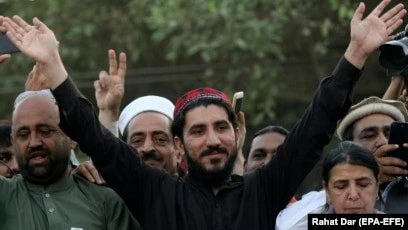India’s Foreign Policy of Fear and Force

The recent BBC investigations revealing India’s alleged involvement in extrajudicial killings on foreign soil have sent shockwaves across South Asia. For Pakistan, these revelations are not just troubling, they are a clear and present danger to its national sovereignty. According to the reports, India’s external intelligence agency, the Research and Analysis Wing (RAW), has carried out targeted assassinations in neighboring countries, including Pakistan, under direct approval from the highest levels of the Indian government. These are not rogue operations; they represent a dangerous new doctrine in Indian foreign policy, one that openly undermines international norms and sovereign boundaries.
India’s response to these allegations has been both telling and alarming. Rather than denying the claims outright, Indian officials have offered vague justifications cloaked in the rhetoric of national security. Defense Minister Rajnath Singh’s provocative declaration that India will pursue its enemies “even if they are inside Pakistan” is a stark admission of intent. This isn’t counterterrorism, this is state-sanctioned vigilantism, and it is being packaged for domestic consumption in an election year where hyper-nationalism is currency.
From Pakistan’s perspective, this aggressive posture is a deliberate escalation designed to provoke and distract. India’s consistent effort to label dissidents and political activists as terrorists, particularly from the Sikh and Kashmiri communities, is being used to rationalize extrajudicial actions that bypass both international law and bilateral diplomacy. If these actions go unchecked, they risk institutionalizing a norm where powerful states can unilaterally become judge, jury, and executioner beyond their borders.
This situation demands a firm yet measured response from Pakistan. First and foremost, these allegations must be taken to every relevant international forum, from the United Nations to the International Court of Justice. India must be held accountable not just for violating Pakistan’s sovereignty, but for eroding the very framework of international law that keeps regional peace intact. Pakistan should also coordinate closely with allies, especially China and Turkey, to apply diplomatic pressure and expose this new Indian aggression for what it is, a reckless, politically motivated strategy to stoke nationalist fervor at home by creating chaos abroad.
Domestically, Pakistan must strengthen its counterintelligence capabilities and reinforce protective measures for vulnerable individuals, especially those who may be targets of cross-border operations. But this is not just a security issue. It is a moral and political test for Pakistan, to uphold its sovereignty without succumbing to the same lawlessness that India now appears to be embracing.
This is not a bilateral spat, it is a regional crisis born out of India’s dangerous ambitions. Pakistan must lead the charge in exposing this duplicity, resisting provocation, and asserting that peace cannot exist where lawlessness is tolerated. In this moment, silence is complicity, and inaction is surrender.











